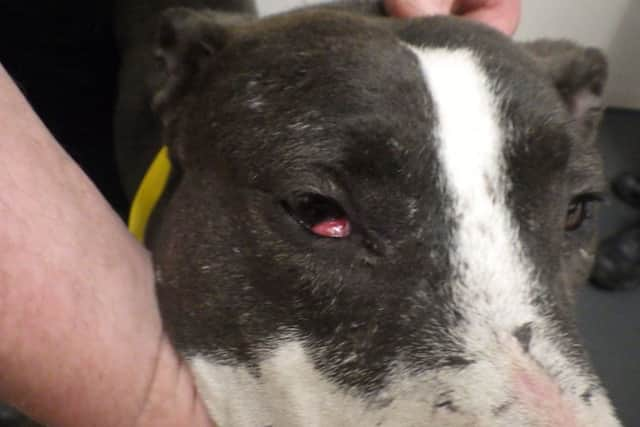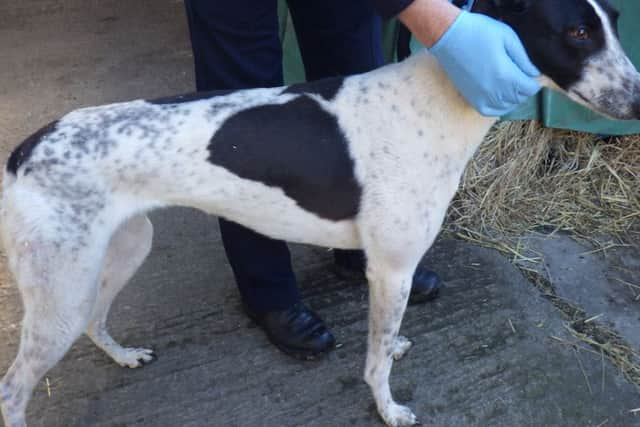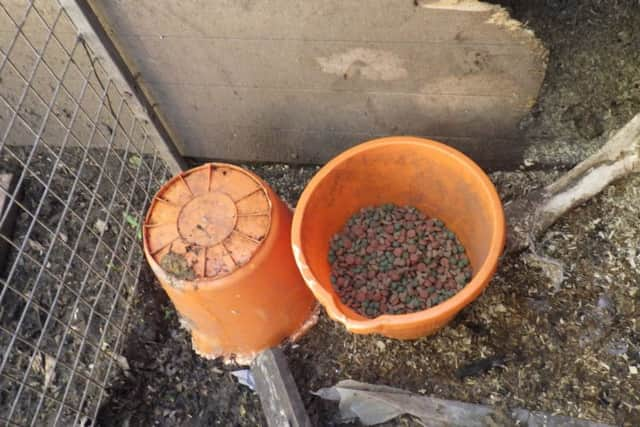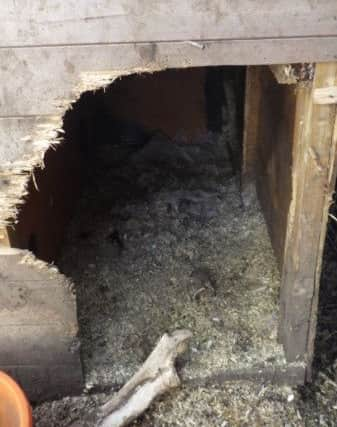Man banned from keeping dogs for five years after they are found in '˜dangerous' conditions


Stuart Henry Husband had posted pictures of his five lurcher type dogs alongside dead foxes on Facebook last year.
Acting on intelligence, the RSPCA raided Husband’s Houghton home and found five lurchers.


Advertisement
Hide AdAdvertisement
Hide AdInspectors found that they were not kept in a suitable environment, with some left in dirty pens with no proper flooring.
One of the dogs, named Tara, was suffering from “cherry eye” a painful condition, for which the animal should have been given veterinary treatment.
The dogs were immediately taken off Husband, 27, who was later said to be “suicidal” at losing the animals, and into the care of the RSPCA.
He appeared at Sunderland Magistrates’ Court where he plead guilty to failing to ensure animal welfare, while he was found guilty after trial of causing unnecessary suffering to a protected animal.


Advertisement
Hide AdAdvertisement
Hide AdThe court heard that Husband’s home was visited by the RSPCA on April 4 last year.
Prosecutor John Ellwood told the hearing: “The defendant had posted pictures of him on Facebook with his dogs and dead foxes, although the defendant is not prosecuted for hunting with dogs.”
Some of the pens in which the dogs were found to have just mud or soil on the floor, with a large quantity of faeces present as well.
In one pen there was also a number of “potentially dangerous objects including shovels, a gardening fork, wire mesh sheeting, cans and can lids.”


Advertisement
Hide AdAdvertisement
Hide AdVeterinary surgeon Micaela Wright, one of those who inspected Husband’s home, said in a statement: “It is my opinion that a number of offences had been committed in relation to these five dogs.”
Defence solicitor Holly Clegg told magistrates that Husband previously worked full-time as an asbestos remover before he had to give the role up to care for his elderly father.
“He did not take the animal (Tara) to the vet when he should have done,” said Ms Clegg.
“In my view that is simply incompetent care rather than neglect.


Advertisement
Hide AdAdvertisement
Hide Ad“He admitted that the environment was less than perfect and there was more that he could have done.
“He just let things get out of hand.
“When the dogs were seized from him, he took that extremely badly and he expressed suicidal thoughts at the time.”
Following reports from the Probation Service, chairman of the bench Alan Le Marinel sentenced Husband, of Sunderland Street, Houghton, to 200 hours of unpaid work and ordered him to pay costs of £3,000 and a victim surcharge of £85.
He was also disqualified from owning dogs for the next five years, which he can apply to remove after three years.
Advertisement
Hide AdAdvertisement
Hide AdFollowing the case a spokesman for the RSPCA said: “There can never be any excuse for keeping animals in squalor.


“The RSPCA will continue to pursue fair and reasonable treatment for all animals.
“The defendant showed no remorse for his actions, which the magistrates found caused suffering, until he was convicted on strong evidence.
“It may well be the case that the defendant cared not for the dogs, but for his use of them, namely hunting.”